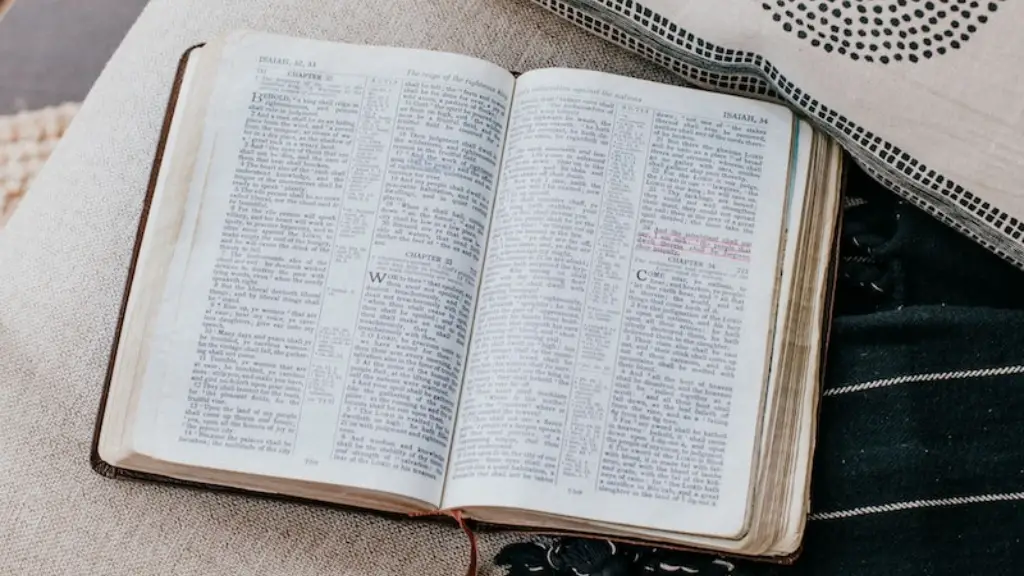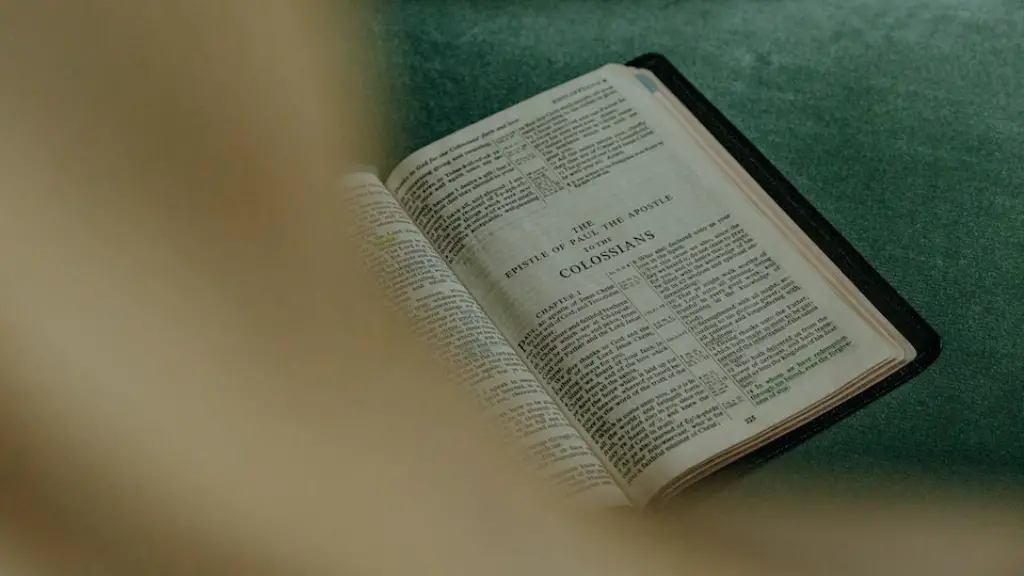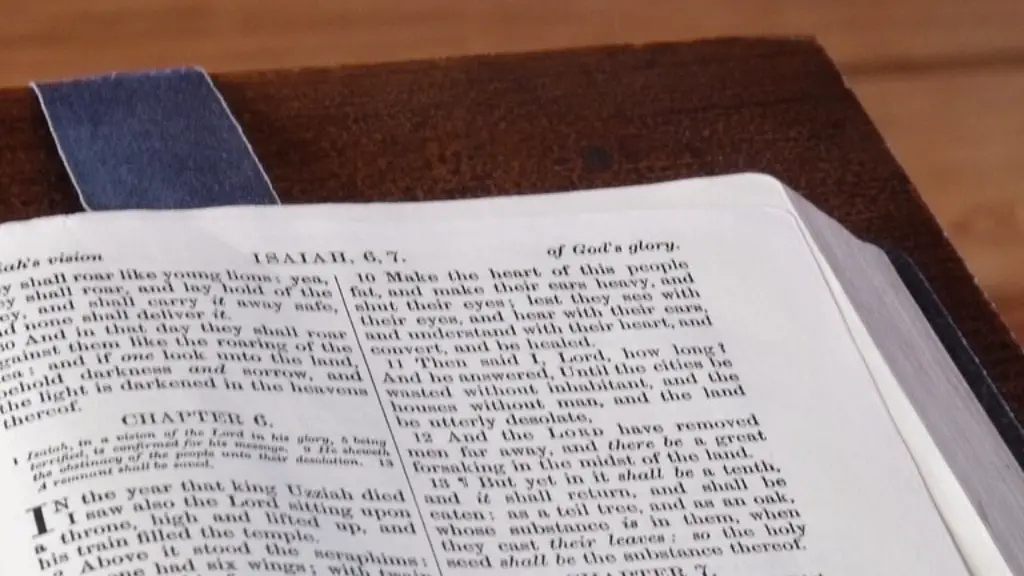Who Is Hezekiah In The Bible?
Hezekiah is an important figure in the Bible, particularly the Old Testament. He was the son of the notorious King Ahaz, who almost completely eradicated the Israelite religion in favour of the more popular Assyrian one. Hezekiah was not content with his father’s decision and instead worked to bring back traditional Israelite worship and belief. Furthermore, Hezekiah is best known for his brave stand against massive Assyrian forces, which eventually won him a historic battle and an incredible miracle. He was also known for his many reforms and is often seen as an important model for subsequent kings.
Hezekiah is first mentioned in the 2 Kings 16 of the Bible. In this chapter, it is made clear that he is a strong believer in the Jewish faith, despite his father’s willingness to accept other religious traditions. Hezekiah was determined to restore the traditional faith and culture of his people, and he acted swiftly and decisively to do so. He re-instated the Mosaic Law, abolished pagan worship and restored many of the traditional places of worship.
Hezekiah was also a ruthless and effective military commander. At the height of Assyrian power, Hezekiah bravely led a desperate and outnumbered force against them, and won a dramatic and unexpected victory. This was in part due to the Assyrian army being greatly weakened by a plague, which is said to have been brought on by an angel. This remarkable event is recorded in the book of 2 Kings, which claims that Hezekiah was the reason Assyrian armies were defeated and ultimately driven away in the first place.
What was even more remarkable was Hezekiah’s commitment to reforming and leading the Jewish people. He was particularly focused on reuniting the ten northern tribes, which had broken away from the kingdom of Israel. He also instituted tax reform and trade taxes and published a proclamation for everyone to obey the laws of God. Hezekiah was of special importance for the whole of Judah, as his reforms allowed for continuous prosperity and political stability.
Religion
Hezekiah was also a strong believer in the Jewish faith, despite his father’s willingness to accept other religious traditions. Hezekiah was determined to restore the traditional faith and culture of his people, and he acted swiftly and decisively to do so. He re-instated the Mosaic Law, abolished pagan worship, ratified his covenant with God and established a religious court to oversee matters of faith and justice.
Hezekiah also remained dedicated to improving the spiritual life of his people by leading by example. He made a significant contribution to communal prayer and religious education. He built many synagogues to house prayer meetings and supported the development of Israelite liturgy. He was also interested in the spiritual life of individuals and gave citizens the opportunity to join in communal prayer. Furthermore, Hezekiah strongly urged the people of his kingdom to ‘return to God’.
One of the most spectacular events employed by Hezekiah as an attempt to worship God was an annual pilgrimage to the Bethel temple on the first day of every month. This inspired a sense of national identity and purpose which strengthened the unity among the kingdom. Additionally, Hezekiah commenced a number of religious reforms, such as the destruction of “sun images”, and taught his people the importance of the prophetic message and its mission to restore justice.
Legacy
Hezekiah is remembered as an exemplary ruler that preserved the faith of generations to follow. He initiated much spiritual and economic reform, and his legacy has left an impressive lasting impact on religious, political and social freedom. He is often referred to as, “the father of religious liberty” since Hezekiah was the first king in the Bible to ensure the freedom of religion. His courage in leading a successful campaign against the Assyrian forces and his relentless dedication to bringing justice back to his people helped pave the way for a renewed sense of faith in the nation of Israel. His story continues to be featured in many stories, dances and music and he is a popular figure in modern culture.
Miracles
Hezekiah’s life was filled with many incredible miracles. One of the most notable of these was the “sign of the sun” which is recorded in both Kings 2 and Isaiah 38. This sign was seen as a cure for the plague that had engulfed the people of Israel and it was done out of Hezekiah’s great faith in God. Another miracle was the prolonged life of Hezekiah. Despite being ailing and ill, he went on to survive for another 15 years, which was seen as a sign of God’s love and mercy towards the Israelites.
Politics
Hezekiah proved to be a wise and capable political leader. While he reigned, Hezekiah maintained an effective foreign policy. He successfully negotiated with neighbouring nations such as Aram, Assyria, and Philistia, of which he was able to secure favourable treaties and alliances. Likewise, Hezekiah was also dedicated to establishing a stable administration. He created a council of advisors, appointed officials, organized a tax system and improved the overall supply of resources for his people. Moreover, Hezekiah was highly invested in defending his kingdom and provided significant resources for military protection.
Economic Reform
Hezekiah possessed an unwavering commitment to economic well-being of his people. He strengthen the tax system and reduced trade taxes. In order to ensure an efficient administration of resources and to provide opportunities of prosperity, Hezekiah also endorsed free-market practices. His dedication to economic stability is commemorated in the impressive fortification of his cities, which helped to protect nearby inhabitants and guarantee development of agriculture and trade industries.
Education
Hezekiah’s commitment to education was unparalleled. He implemented educational practices for both children and adults, with a strong emphasis on religious studies. Hezekiah wanted to cultivate a knowledgeable populace, and so he built schools in the major cities and encouraged learning. He also sought to make religious teaching widely available by establishing libraries and providing resources for the study of the scriptures. One of his greatest accomplishments in this area was his establishment of the School of the Prophets, which attracted some of the most brilliant minds of the era.
Reforms
Hezekiah was a reformist. He made significant changes during his reign, by centering his focus on the spiritual and economic health of his people. He abolished pagan practice and introduced the true worship of God. He instigated significant religious and political reforms, which provided a source of renewed justice with the nation of Israel. Furthermore, Hezekiah also made efforts to improve and restore the cultural and religious traditions of the nation. He was a leader who had the passion and courage to ensure a better life for his people.


